




 |
   |
 |
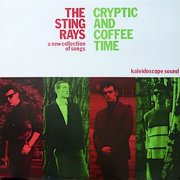 |
Cryptic & Coffee Time (1987, 44.22) **½/½ |
|
| Behind the Beyond Hopelessness of the Human Race Don't Sell Yourself Short Bitterness The Big Lie Through the Dawn Reason Nor Rhyme The Burden of Dreams |
Tear Them Down Love of a Kind The Big Tide Will Turn Middle Age Spread I'm Growing Old All These Years |
|
Current availability:
Mellotron used:
The Sting-Rays (not to be confused with Bristol's Stingrays, apparently) were supposedly a rockabilly/psychobilly outfit, although a rare studio album, 1987's Cryptic & Coffee Time, features a thrashy, echoey, yet strangely unenergetic sound that seems a long way from The Cramps and their ilk. Maybe they were better live? Anyway, I'm having trouble picking out any tracks for praise, as it all sounds pretty much the same to my ears. Sorry, chaps.
Alec Palao plays Mellotron, with naught but a faint string part under the Farfisa on I'm Growing Old that falls squarely into the 'why did they even bother?' area. This album documents a period and a place, but, these days, sounds like it's just landed from Mars. It does what it does well enough, I suppose, but all seems a bit unnecessary now, with next to zero Mellotron to boot.
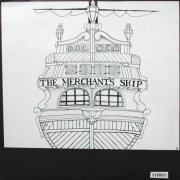 |
The Merchant's Ship (1974?, 33.43) ***/TT½Pack Your ThingsThief in the Night Sheep Last Masquerade Merchant's Ship Arise and Go Hungry Jerusalem Shepherd's Song |
Current availability:
Mellotron used:
The husband/wife duo of Billy and Sandra Stinson may only have made the one album, The Merchant's Ship, from around 1974 (like so many similar, it's undated); if so, at least they made it worth the effort. It's a relatively harmless folky Christian effort, as these things go, the Stinsons' voices harmonising nicely over sympathetic, mostly acoustic arrangements, highlights including the odd, squeaky little waltz-time section in Last Masquerade and closer Shepherd's Song, although the mainstream country of Hungry is a little unnecessary.
Bill Stroud plays Mellotron on several tracks, with strings all over opener Pack Your Things, strings and flutes on the title track and Arise And Go and cello and upfront strings on Jerusalem, all enhancing the material nicely. What? Thompson's being nice about a Christian album? Well, while it's not the unsung classic some excitable online observers might have you believe, it's perfectly pleasant, its message just about low-key enough not to offend non-believers. Incidentally, now clearly well into their sixties, the Stinsons are still at it, a current Facebook page attesting to their continuing activity.
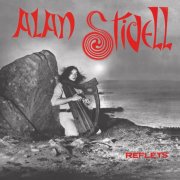 |
Reflets (1970, 34.00) ***½/½ |
|
| Reflets Suite des Montagnes Marig ar Pollanton Broceliande Son ar Chistr Sally Free and Easy Suite Irlandaise Sil Vestrig |
Tenval an Deiz Je Suis Né au Milieu de la Mer |
|
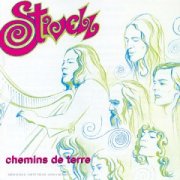 |
Chemins de Terre [a.k.a. From Celtic Roots] (1973, 38.44) ****/½ |
|
| Susy Mac Guire Ian Morrisson Reel She Moved Through the Fair Can y Melinydd Oidhche Mhaith An Dro Nevez Maro Ma Mestrez Brezhoneg' Raok |
An Hani a Garan Metig Kimiad |
|
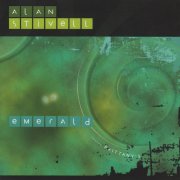 |
Emerald (2009, 57.58) ***½/½ |
|
| Brittany's (Ar Bleizi Mor) Lusk (Skye Boat Song) Marionig Tamm Ha Tamm (Rennes, Nantes & Brest) Gael's Call (Glaoch Na nGael) Harplinn Goadec Rock Eibhlin (Eileen a Roon) |
Aquarelle (Er Penn All d'al Lanneg) An Hirañ Noz (Noël, Espoir/Ar Hyd y Nos) Mac Crimon part I part II part III |
|
Current availability:
Mellotrons used:
It could be considered insulting to say that Alan "Stivell" Cochevelou is 'French'; he's actually a Breton, from the area known to English speakers as Brittany, home to one of the six ancient Celtic languages, along with Cornish, Welsh (the most actively spoken of the six), Irish, Scots and Manx (Isle of Man). Along with brief Fairport member Dan ar Bras, Stivell is chiefly responsible for the upsurge in interest in his region's folk traditions in the '60s and '70s. His chosen instrument is the Breton harp, looking a lot like the Irish harp (as used by Guinness as their logo), on which he is apparently a virtuoso; he also plays various pipes and flutes, plus keyboard instruments. He debuted with 1970's Reflets, successfully melding traditional Breton music with contemporary influences, creating his own, unique brand of folk rock in the process. Highlights include the opening title track, the beautiful, harp-led Suite Des Montagnes, Suite Irlandaise and Je Suis Né Au Milieu De La Mer, making this (and Stivell's other early work) must-hears for students of the roots of folk rock. Mellotron? Gilbert Cascales and Roger Masson are both credited with organ, so I presume it's one of them who plays a brief M300 string part on Suite Des Montagnes.
Chemins de Terre/From Celtic Roots was Stivell's fourth album proper, although his earliest recording dates from his mid teens, in the late '50s. I can imagine that parts of it upset traditionalists at the time, especially the twin-guitar workout on his own composition, Brezhoneg' Raok, although there's plenty of traditional music from all corners of the Celtic region to balance it out. She Moved Through The Fair will be familiar to anyone with even a passing interest in English/Irish folk, as it seems to've been recorded by everyone (maybe surprisingly, All About Eve's version is marvellous), although the rest of the 'trad.arr' material is less well known, at least to me. There are a dozen or so musicians featured on the album, including the aforementioned Dan ar Bras on guitar, mixing the ancient and modern (Hammond, electric guitar, kit drums) with aplomb, with the end result that the album fits perfectly into the fledgling folk-rock genre. Stivell's credited Mellotron use has been a bit of a bugbear 'round these parts for a while, but Max has finally solved the conundrum by pointing out the faint cello part under the second half of closer Kimiad. So; an excellent album, fusing disparate styles with care and sensitivity, but close to a zeroid on the Mellotron front.
Decades later, 2009's Emerald sounds both like and unlike his early work. This is still, at heart, a Breton folk album, but the production is markedly better than before, while a few modern influences creep in, not least opener Brittany's programmed percussion (including some English-language vocals, surprisingly) and Gael's Call's full-on rock guitar, combining unexpectedly well with Stivell's bagpipes. Other highlights include the gentle Harplinn, Aquarelle and An Hirañ Noz, although the other guitar-heavy piece, Goadec Rock, works less well. Régïs Boulard's Nicolas Méheust's credited Mellotron appears, if only just, flutes weaving in and out of the mix on An Hirañ Noz.
 |
Radio Fusebox (1999, 43.43) **½/TFlyPoem for a Small Boy Insect She Detuned the Orchestra and Left the Room Lake Alaska 4:00 AM Song for You Talk Show (Letter to a Friend) Arrest She Sang |
Current availability:
Chamberlin used:
Andy Stochansky's second album, 1999's Radio Fusebox, features his signature sparse songwriting style, combining chamber instrumentation with electronica, a style that will either appeal or... it won't. I can't fault his approach, but the end result, while up-to-the-minute for the time, hasn't aged well. Better tracks? The muted Insect and Lake Alaska 4:00 AM, maybe.
Stochansky plays what just might be real Chamberlin on She Detuned The Orchestra And Left The Room, with occasional strings dipping in and out of the mix. Incidentally, despite the credited Mellotron on Stochansky's 2002 release, Five Star Motel, it appears to be sampled.
See: Samples etc.
 |
The Past Was Faster (1999, 54.55) **½/T |
|
| X-Ray Eyes Popular Diseases The Fog Has Lifted Emerald Stew Permafrost Cardinal Body Sculptures Floating on the Waves The Captain |
Vapor Trail Peppermint Lonely Star State Mosquito Blessing |
|
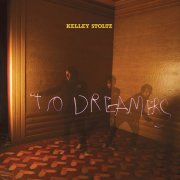 |
To Dreamers (2010, 38.52) ***/TTT |
|
| Rock & Roll With Me Pinecone Keeping the Flame Fire Escape I Remember, You Were Wild Ventriloquist Baby I Got News for You Little Girl |
I Don't Get That I Like, I Like August Love Let Me in Again Bottle Up |
|
Current availability:
Mellotrons used:
Kelley Stoltz's debut, 1999's The Past Was Faster, was recorded at home over a several-year period. May I say, "And it sounds like it"? This is dreary, low-fi indie singer-songwriter stuff, complete with out of tune, well, everything, at its least irritating on the instrumental Peppermint; no coincidence, there, I feel. The album has one stand-out feature, however: not just one, but two 'hidden' tracks after a five-minute silence at the end of the disc (removed from the timing, above), referenced in the credits, but otherwise unmentioned. One Gertrude (surname unknown) plays Mellotron on the second hidden track, Blessing, with cello and string parts, sounding nicely authentic.
2010's To Dreamers is something like Stoltz's eighth album, depending on what you count. His vaguely Brian Wilson-esque approach (in a lo-fi kind of way) works in places, although, at least to my ears, the already short album could easily lose two or three lesser tracks. Best tracks? Pinecone, the brassy Love Let Me In Again and closer Bottle Up, amongst others, although nothing here screams 'classic'. Someone (Stoltz?) plays apparently real Mellotron ("When making the album I got a Mellotron and a Rickenbacker guitar, so they were inspirational and were used a bunch on the record"), with strings all over opener Rock & Roll With Me, closing with a solo part, a flute line running right through Pinecone and strings on all other highlighted tracks, including pitchbends on Little Girl. Overall, then, not bad, not great, some decent songs and good Mellotron work all round.
See: Samples etc.
 |
Purple (1994, 46.56) ***/½ |
|
| Meat Plow Vasoline Lounge Fly Interstate Love Song Still Remains Pretty Penny Silvergun Superman Big Empty |
Unglued Army Ants Kitchenware and Candy Bars My Second Album [hidden track] |
|
 |
Shangri-La Dee Da (2001, 47.22) ***/T |
|
| Dumb Love Days of the Week Coma Hollywood Bitch Wonderful Black Again Hello it's Late Too Cool Queenie |
Regeneration Bi-Polar Bear Transmissions From a Lonely Room A Song for Sleeping Long Way Home |
|
Current availability:
Mellotrons used:
So, what exactly was grunge, anyway? I can't see how Nirvana, Soundgarden and the Stone Temple Pilots sound anything like each other, apart from their generic hard rock-ness. Never mind Pearl Jam, never mind Alice in Chains, never mind Mudhoney (etc. etc.)... The bulk of it (Nirvana excepted) sounds like rather uninspired '70s-influenced American Rock to my ears, with a touch of '80s downtuning thrown in; meet the new boss, same as the old boss...
1994's Purple was STP's second album (terribly daring initials, chaps), apparently in the same vein as their debut, Core, from two years earlier. Vocalist Scott Weiland hadn't quite hit his Heroin Years yet, apparently, so it's all fairly cohesive, if not entirely to my taste. It's the usual Grunge mixture of quiet/loud, slow/fast and I can't really say any particular tracks stand out. A few seconds of Mellotron flutes in the quiet middle bit of Army Ants, from guitarist Paul Leary, although some sources quote producer Brendan O'Brien, but it barely seems to've been worth the effort to haul it into the studio.
Three albums, one split and innumerable drug busts/enforced rehab visits/imprisonments later, STP released what looks like their swan song, Shangri-La Dee Da. It's... well, more of the same, really. I can't think of anything much to say about it one way or the other, although closer Long Way Home isn't too bad, but if you like what they do, I expect you'll like it. On the Mellotron front, Brendan O'Brien (again) provides strings on Wonderful and near-inaudible flutes on Black Again, but that's your lot.
Since what appears to be their final split, Weiland (before his entirely inevitable drugs-related death) joined various ex-Guns N'Rosesers in the tedious Velvet Revolver, who sound like GN'R without what passed for songs on their albums. Dunno about you, but STP won't be missed round these parts and nor were Velvet Revolver after their inevitable dissolution. As for these two albums, if you like STP, you'll probably like them. I didn't. Nor are they worth it for the Mellotron. And if you really can't get enough of this band, everyone except Weiland went off in '97 to record an eponymous album as Talk Show, with minor Mellotron use.
See: Scott Weiland | Talk Show
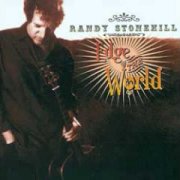 |
Edge of the World (2002, 46.54) ***/T½ |
|
| Dare to Believe That's the Way it Goes We Were All So Young Jayney Take Me Back All I Know Hey, Pauline Edge of the World |
Last Song for Michael Far, Far Prisoner of Hope |
|
Current availability:
Chamberlin used:
To my surprise (as I've never previously heard of him), Randy Stonehill's career stretches back to the dawn of the '70s, with over twenty albums under his belt. He's been linked with Larry Norman, Daniel Amos and Phil Keaggy, amongst others, although the folk-end-of-country material on 2002's Edge of the World lacks that awful preachy tone that so many Christian artists obviously find themselves unable to resist, thankfully, at its best on All I Know and the downtuned title track.
Phil Madeira plays Chamberlin, with credited cellos on That's The Way It Goes, All I Know and Far, Far, although the slow-attack flutelike sound on Hey, Pauline is apparently paired recorders. No classic, then, but far better than expected.
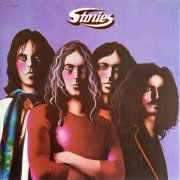 |
About Us (1973, 37.00) ****/TT½ |
|
| Darling Don't Ever Let Me Down Love is in Motion Hey France Please, Please Changes Have Begun Circles Believe Me |
Words Top of the City Down Time Blooze What Comes After |
|
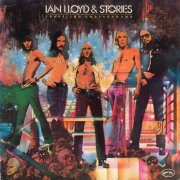 |
Traveling Underground [as Ian Lloyd & Stories] (1973, 41.28) ***½/TTBridgesSoft Rain Hard When You're So Far Away If it Feels Good, Do it Mammy Blue Stories Untold I Can't Understand it Earthbound/Freefall Traveling Underground |
Current availability:
Mellotrons used:
Stories were formed by ex-Left Banke founder Michael Brown (a later member, briefly, was apparently Michael McKean, better known as Derek St Hubbins of the wondrous Spinal Tap), whose baroque stylings helped to set the standards for intelligent pop, even if their name didn't begin with a 'B'. I don't know anything about their self-titled debut, but they followed it with About Us, apparently available in three different versions, the commonest of which contains their cover of Hot Chocolate's Brother Louie, its soulful tones sounding rather out-of-place on the album.
About Us is the work of a band playing, for want of a better phrase, intelligent pop-rock, particularly the material on side one, with imaginative arrangements and skilful playing, although by the end, the album has slightly outstayed its welcome; I could certainly have done without either Down Time Blooze or the aforementioned Brother Louie, but these are minor quibbles. Brown's Mellotron work on the album is occasional but effective, with some really quite full-on string parts on the few relevant tracks; Hey France is particularly good, with a quite unique chorus chord sequence. All in all, well worth the effort, given the well below-par sleeve pic. Well, would you buy a used album from these men?
Brown left after the album's release, leaving vocalist/bassist Ian Lloyd to reassemble the band as Ian Lloyd & Stories, releasing Traveling Underground later in '73. The loss of Brown as a songwriter is immediately apparent, although the album certainly has its moments, mostly on side two. New recruit Ken Bichel plays Mellotron on three tracks, with choir, strings and brass parts on opener Bridges (aided by Les Fradkin) and choirs and strings on the album's 'epic', Earthbound/Freefall, although the strings on Stories Untold are only barely audible.
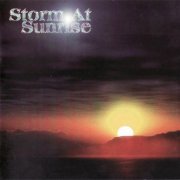 |
Garden of Forgotten Ideals (1999, 67.52) ***½/T½ |
|
| Intro Jaded Ageless Moonrock Heavy Rock Revival No Good for No One Hellspawn Top Heavy |
Morning Sun Pussy Cat I Just Want to Celebrate From Cradle to Grave |
|
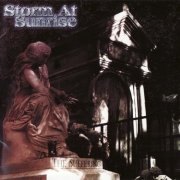 |
The Suffering (2001, 68.13) ***½/TT |
|
| You Don't Know! Everything Sucks Blood on the Horizon Cycle of Misery There I Said it Man, That's a Drag Timewarp Closure |
The "I Hate the Blues" Blues Victims of the Status Quo Woman The Suffering |
|
Current availability:
Mellotrons used:
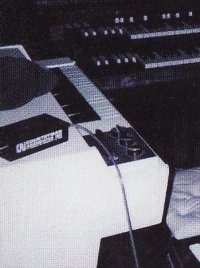 |
Storm at Sunrise were former Covenant mainman Dave Gryder's next project, less prog and more full-on retro hard rock, in the style irritatingly known as 'stoner' these days, although there's little of the herbal cigarette about their high-octane material. Largely a studio outfit, mainly due to Gryder's three-pronged vocals/keys/drums role, they only released two albums, which remain still-to-be-discovered minor classics of the style.
If 1999's Garden of Forgotten Ideals has a fault, it's the sheer amount of material on display; this kind of album works best at 'vinyl length', anything over, say, fifty minutes of this stuff being rather too much of a good thing. After the brief, gentle Intro, the album kicks into high gear immediately, staying there for the next hour-plus in a relentless assault on your cerebellum, sounding like a cross between Uriah Heep, Mountain and any number of rocking American bands who never really made it outside their own state, never mind the country as a whole. Its better tracks include Jaded, Hellspawn and Morning Sun, although with little stylistic variation across the record, there isn't that much to choose between most of the songs. Gryder plays a little Mellotron between monolithic slabs of B3, with a flute melody on uncharacteristic opener Intro, background strings on Jaded and more upfront ones on Hellspawn and closer From Cradle To Grave.
They followed up, two years on, with The Suffering, essentially more of the same, to the point where one's concentration slips after a few tracks; I mean, how many more single-note riffs can one man take? The album's lowest point is probably the lyrics on Woman, sung in Gryder's 'stoner rock' voice, the kind of thing that should've been left in the cupboard marked '1973', while the highlight has to be its fourteen-minute closing title track, the proggiest thing on either of these records, complete with an Änglagård-esque Mellotron flute duo part from Gryder opening and closing the piece. The only other Mellotron on the album is the grungy strings on Cycle Of Misery, the clearer ones on Man, That's A Drag and a part in the middle of the title track, bumping its rating up slightly from its predecessor.
Gryder involves himself in other projects these days, sadly leaving Storm at Sunrise in the 'where are they now?' file. Both of these albums could do with a bit of an edit, too many tracks sounding too similar to too many others, but if you just can't get enough of that '70s thang, chances are you'll love these. Not all that much Mellotron on either, but enough to make 'em worth hearing if you get the chance.
See: Covenant
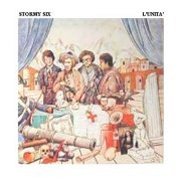 |
L'Unità (1972, 32.47) ***/½GaribaldiTre Fratelli Contadini di Venosa Pontelandolfo Sciopero! Suite per F & F La Manifestazione Fratello |
Current availability:
Mellotron used:
L'Unità was Stormy Six's second album and found them in the middle of their 'West Coast' phase. They had been left-wing activists from their inception in the mid-'60s, but for some reason chose soft-rock as the best style to convey their message, at least in the early '70s. In fairness, it's not a bad album, with Suite Per F & F and La Manifestazione being worthy of mention, but there's too much lightweight material to really recommend it.
Keyboard player Franco Orlandini, who left part of the way through the sessions, added Mellotron strings to Pontelandolfo, but not in any major way; presumably he would've played a bit more had he not walked out... So; an OK album, but an awfully long way from the cream of the Italian progressive scene, despite its prog leanings. Apparently, they made more interesting records later, co-founding the Rock In Opposition (RIO) movement, alongside Henry Cow, Samla Mammas Manna, Univers Zero and others, but probably sans Mellotron.
See: Claudio Rocchi
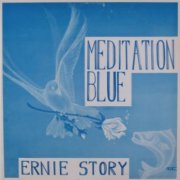 |
Meditation Blue (1977, 31.15) ***/TMeditation BlueLost Without You Sinners Lament Chain Gang Disco City Dreamers Holiday The E Groove A Tribute to Lady Jane The Gospel in E. Minor |
Current availability:
Mellotron used:
Information on Ernie Story is hard-won, it would seem. He apparently wrote songs for the likes of The Impressions and The Chi-Lites, although 1977's privately-pressed Meditation Blue seems to be his only actual release as a performer. Unsurprisingly, it sits somewhere between the jazz and soul camps, while its basic (note: not poor) production would probably have turned many potential listeners off at the time. Glossy this is not. Best tracks? The dirty blues of the opening title track, the groove of Chain Gang, jazzy instrumental The E Groove, which disappoints only in its brevity and six-minute closer The Gospel In E. Minor.
Buddy James plays wavery pseudo-orchestral Mellotron strings on Chain Gang, to good effect, although the strings on Disco City are real. This doesn't appear to've been reissued, even as download-only (I point blank refuse to call such releases 'digital'), but it does crop up on download blogs. Good at what it does, one decent Mellotron track.
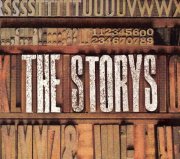 |
The Storys (2006, 43.08) **/T |
|
| I Believe in Love Be By Your Side Cinnamon High Enough You're Taking My Heart Away You're Not Around Roll Like a Stone |
Save Me The King of Broken Dreams Journey's End (Show Me Love) Is it True What They Say About Us? |
|
Current availability:
Mellotron used:
The Storys' (rubbish name, guys) eponymous album is filled with bland, folky adult pop, like an even less interesting, Welsh version of Runrig, which isn't much of a recommendation. They manage to up the energy levels occasionally, notably towards the end of Roll Like A Stone and on Save Me, but it's a rarity here.
Vocalist/guitarist Dai Smith plays Mellotron on You're Not Around, with a repeating flute part featuring just enough warble to sound genuine. Given that their website domain name is currently for sale, I suspect the band are now defunct. I wish I could feel more sorry.
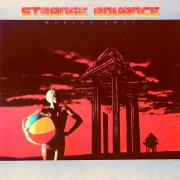 |
Worlds Away (1982, 42.24) ***½/TT½ |
|
| She Controls Me Love Games One Chance in a Million Sister Radio Automatic Sighs Worlds Away Kiss in the Dark Hold on to the Nite |
Watermusic Prisoner Worlds Away (Reprise) |
|
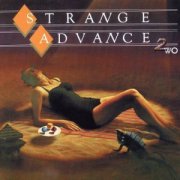 |
2wo (1985, 43.27) ***/T |
|
| I'll Be the One to Cry The Second That I Saw You We Run Prelude Home of the Brave The Sounds of Life Blue Fire Just Like You |
Running Away Nor Crystal Tears |
|
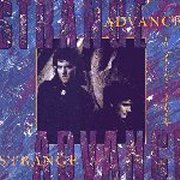 |
The Distance Between (1988, 49.51) **½/½ |
|
| Till the Stars Love Becomes Electric Who Lives Next Door Love is Strange This Island Earth Hold You Crying in the Ocean Wild Blue |
Rock and Whirl Ultimate Angels Alien Time |
|
Current availability:
Mellotrons used:
You must be getting a bit sick of me saying this by now, but Strange Advance are a bit of an oddity. Not just their musical style (synth-pop) or era (mid-'80s), but for the Mellotron they owned: the 4-Track. "The what?", I hear you cry? The 4-Track was a last-ditch (US) innovation on the tape-replay front, flying in the face of The Future, in the shape of digital technology and sampling. Instead of single-track heads on a moveable block, the 4-Track had (wait for it) 35 matched 4-track heads, with either three or four track tape running across them, enabling the player to mix'n'match sounds at will. Whether it actually worked is a bit of a moot point, as only a handful were made (some sources quote as few as four) and the whereabouts of any of them now is unknown. What's more, it was a bit of a visual monstrosity, being made of pressed aluminium, giving it a faint resemblance to a washing machine, assuming you turned it sideways and added a keyboard (see below).
However... Keyboard player Drew Arnott contacted me recently, telling me that although the band owned one of these expensive beasties (record company cash, don'cha know?), it sounded so awful that they actually used a regular M400. According to Drew, the manufacturer had 'raved about the sounds', saying that they'd 'improved on the originals by a factor of ten' (yeah, you work that one out). Not only did the sounds 'suck', but the metal cabinet had edges so sharp that you could cut yourself on it. Classy... So the prize for 'first known recording of a 4-Track' is still to be won, it would seem.
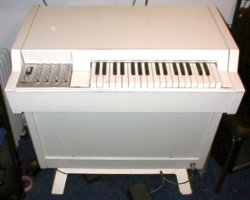 |
|
| photo: Robert Laughton. source: Candor Chasma | |
Strange Advance were Canada's answer to the early-'80s synth-pop boom (along with the later, related Images in Vogue), with loads of synths (I hear they used massed Prophet 5s at one point, which can't be bad), more slap bass than you can shake a stick at and a singer who sounded a lot like David Bowie, although they were vastly better than the likes of the flaccid Duran Duran. They debuted with 1982's Worlds Away, a pretty decent collection of material within the genre, better material including Sister Radio (spot the Somewhere Over The Rainbow musical quote) and the title track. Arnott adds Mellotron to a few tracks, with background choirs on opener She Controls Me and Hold On To The Nite, strings and choir on the title track and strings, flutes, choir and church organ on Sister Radio.
It took the band three years to follow-up with 2wo, largely due to lineup hassles, I believe. The album sounds surprisingly normal at times, with tracks like Running Away featuring guitar, piano and other un-synthlike instruments and while the songwriting is reasonable, this is never going to be rated alongside Japan, Soft Cell et al. (not that Japan were actually synth-pop per se, but you know what I mean). Arnott's M400 can only be heard on a couple of tracks here (which explains why what I thought was a 4-Track sounds disappointingly like an M400), with strings on opener I'll Be The One To Cry and choirs (and possibly strings) on We Run, although I think the orchestralish strings on moody album closer (and best track?) Nor Crystal Tears are synth-generated.
The band produced one more album, another three years on, in the shape of 1988's The Distance Between, an even more mainstream effort than its predecessor. I've heard far (FAR!) worse albums, but it's all a little inessential, along with the other 99.9% of '80s pop. Drew assures me there's Mellotron on the album, although the only even slightly possible use is the choirs on Wild Blue and closer Alien Time, neither of which sound particularly Mellotronic.
So; Worlds Away (which I keep trying to call Worlds Apart, from fellow Canucks Saga) is definitely Strange Advance's best album, musically and Mellotronically, 2wo has its moments on both fronts, although The Distance Between comes in a pretty poor third. Incidentally, Arnott got to know producer Bruce Fairbairn and not only played Mellotron on Aerosmith's seminal Permanent Vacation a few years later, but advised Yes on Mellotron samples for 1999's The Ladder.
See: Images in Vogue
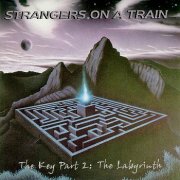 |
The Key Part II: The Labyrinth (1993, 72.02) *½/T |
|
| Darkwood A New Beginning Edge of Darkness Deliverance A Moment of Sanity Beyond the Rubicon Hijrah The Labyrinth The First Veil: Sensing a Presence The Second Veil: Contamination The Third Veil: Trick of the Light |
The Vision Clear Endzone Ocean's Flames Purification Recovery A New Perspective Denouement |
|
Current availability:
Mellotron used:
Strangers on a Train were one of neo-prog führer Clive Nolan's several early '90s projects designed to give him a creative outlet outside the band for whose membership he is still best-known: Pendragon. Allegedly, they're a closed shop writing-wise, with vocalist/guitarist Nick Barrett making a living from the band whilst the other musicians are paid session fees for recording and a wage for touring, although I admit this could be misinformation. These days, although he still has fingers in several pies (quick un-PC weightist joke there), Nolan puts most of his creative energies into revolving door neo-prog supergroup Arena with ex-Marillion drummer Mick Pointer, whose ex-member count must have hit double figures by now.
Anyway, back to this particular project. Strangers on a Train ran concurrently with several other Nolan-related outfits, including Casino and Shadowland, all of which, as far as I can tell, followed the early-'80s neo-prog template to a T, eschewing any attempt at originality, inventive chord sequences and unexpected key modulations in exchange for ersatz, squeaky-clean, bright'n'breezy melodies and fifth-hand ideas stolen from Genesis and Camel, a largely unsung influence on the neo-prog scene, probably due to the relative simplicity of their material, while missing the point that their melodic invention was second to none. I've been fortunate enough not to have heard the Mellotron-free The Key Part I: The Prophecy, but Part II: The Labyrinth is every bit as schlocky as you can imagine, stretching a handful of wafer-thin ideas out over seventy bloody minutes, at the end of which the informed listener is likely to feel like committing several sacrilegious acts [note: destroying the CD doesn't count]. Incidentally, a previously-unmentioned influence on this and other Nolan projects is the horrible Andrew Lloyd-bloody-Webber, with his ultra-cheesy excuses for musical theatre, an already overly-cheesy genre. Yeah, Lloyd Webber; it all makes sense now.
For some reason, Clive opted to use ex-Quasar vocalist Tracy Hitchings on the album, also to be heard on Gandalf's Gallery of Dreams and several Landmarq albums, should you really feel the need. She over-emotes in her usual style, sharing the vocal parts with Pallas' Alan Reed, who, while overblown on this occasion, can't compete in the OTT vocal stylings stakes, you'll probably be glad to hear. I have to say, the material here really is godawful, repeating on the listener like a bad curry, giving you the feeling it's never going to end, even when you know, logically, a CD can only last eighty minutes, tops. About the only passable part of the album is part three of The Labyrinth itself, with a pseudo-medieval feel about it that makes a welcome change from the overblown nonsense that makes up the rest of this crummy record.
Clive's credited with Mellotron, amongst a stack of then-current gear, although the album predates his purchase of IQ's Martin Orford's machine by several years, so I've no idea whose M400 he's using, assuming it's actually real, although (just about) useable samples had recently become generally available. Martin's, but borrowed? Anyway, it's largely buried under a slew of horrible modern synths, with naught but choirs on part two of The Labyrinth. Listen, don't buy this album unless your idea of a good listen is the sort of 'prog' that glorifies style over substance, gloss over grit and pompous rubbish over content. I tried to approach this with an open mind, but was defeated about a minute into the first track. Avoid.